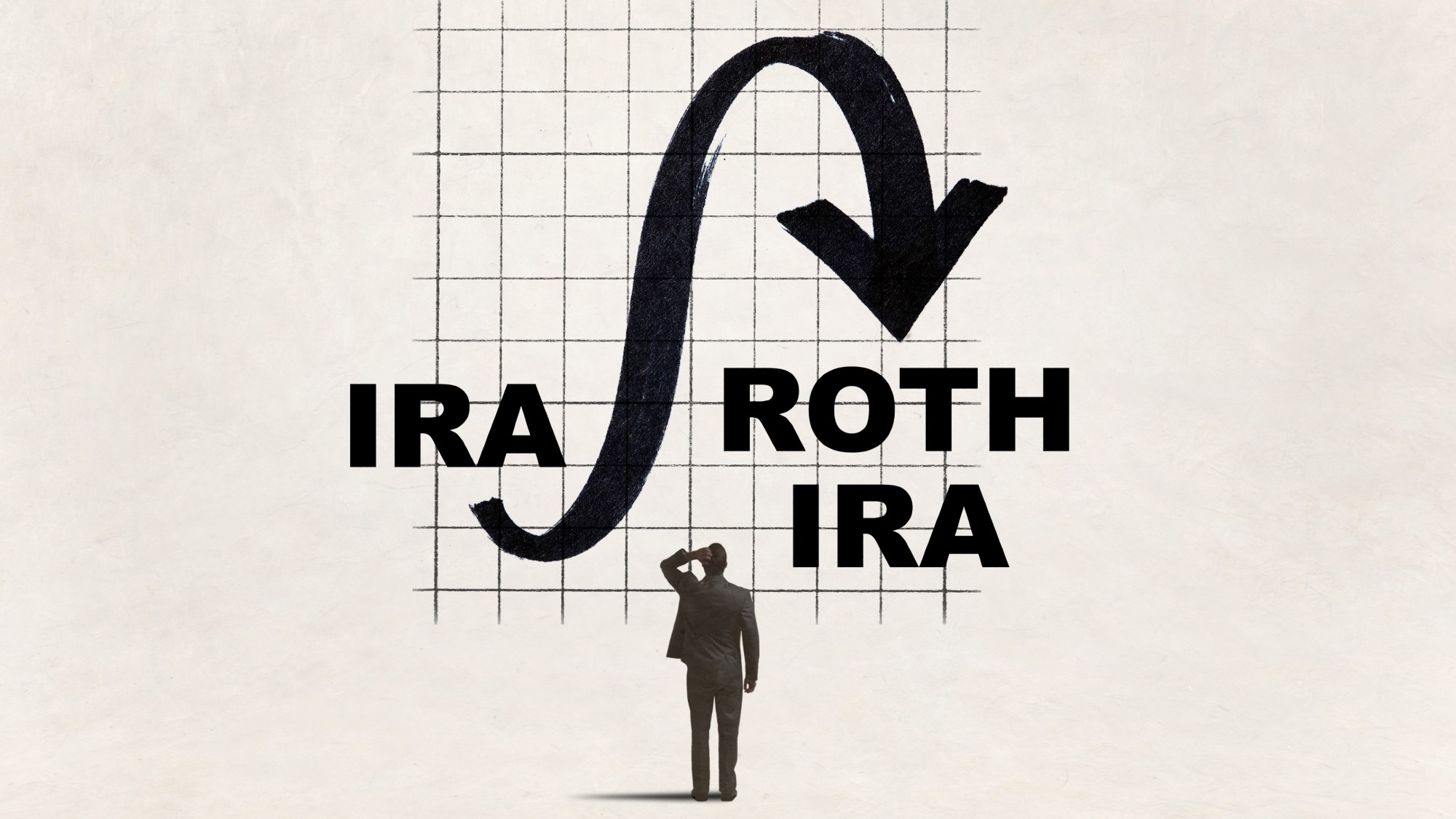State pension mistakes: how to check your payments are correct
Millions of people have been underpaid their state pension and many may not realise they are owed money – are you affected?

A free daily email with the biggest news stories of the day – and the best features from TheWeek.com
You are now subscribed
Your newsletter sign-up was successful
Older women could be owed thousands in state pension payments due to government errors.
There are "several different groups" of older women who may have been underpaid their state pension for "various reasons", due to errors in national insurance records, said Unbiased.
But the government has been accused of "abandoning" more than 100,000 pensioners, said The Times, due to "widespread system errors".
The Week
Escape your echo chamber. Get the facts behind the news, plus analysis from multiple perspectives.

Sign up for The Week's Free Newsletters
From our morning news briefing to a weekly Good News Newsletter, get the best of The Week delivered directly to your inbox.
From our morning news briefing to a weekly Good News Newsletter, get the best of The Week delivered directly to your inbox.
What are the latest developments?
Computer errors meant parents who gave up work to look after children but claimed child benefit between 1978 and 2010 missed out on a scheme known as Home Responsibilities Protection (HRP), which would have boosted their state pension entitlement.
HRP was designed to make sure parents and carers did not miss out on pension rights while they were occupied at home.
These cases arose after the Department for Work and Pensions (DWP) was checking samples for a "previous set of large-scale errors", said IFA Magazine.
In 2023, the government began writing to 370,000 pensioners who may be owed money and directed them to an online checker, but "substantial numbers" have not responded, the latest DWP annual report shows.
A free daily email with the biggest news stories of the day – and the best features from TheWeek.com
HMRC has corrected records of 12,379 state pension underpayments totalling around £104 million and the DWP expects to spend only a further £29.8 million.
This is "well short" of the estimates of £1 billion thought to be owed, said former pensions minister Steve Webb, now a partner at consultancy LCP.
State pension fact file
The state pension is a regular payment paid by the government to older people.
You are eligible once you reach state pension age, currently 66, and you usually need at least 10 years of National Insurance (NI) contributions to receive a minimum rate, and 35 years to get the maximum.
It increases each year based on a controversial calculation called the triple lock. The new full state pension is currently worth £230.25 a week.
Why you should check your state pension
The HRP errors are "just one group of many", said MoneyWeek, with others affected by "admin errors" that affect married women, widows and the over 80s at a combined value of £594 million.
Married, divorced or widowed women who reached state pension age before April 2016 should have automatically received up to 60% of their husband's basic state pension entitlement since 2008. However, they "could be missing out" due to errors, said Unbiased.
The DWP estimates that around 237,000 people are affected and the government department is checking records and making contact with them.
It means some married women, widows and those aged over 80 should get payments "without having to take any action", said Lane, Clark & Peacock (LCP), which helped uncover the issue. Others though, such as married women whose husbands turned 65 before 17 March 2008 and women who divorced after pension age, will need "to contact the department" or check with the Pension Service.
Some people may have died and their families will be "entitled to check their eligibility" and make a claim for any arrears, added the financial website.
LCP has a tool to check whether you are being underpaid.
How to check your state pension and fill the gaps
If you want to spot errors and see what you are entitled to, the "easiest thing to do", said MoneySavingExpert, is to check your state pension forecast.
It will tell you how many qualifying National Insurance years you've already built up, and how many more you need to get the highest state pension available.
There could be gaps for a "range of reasons", said The Telegraph, such as earning a low income where you're not required to pay NI, being self-employed and not making adequate contributions.
In certain circumstances, these gaps can be filled by making voluntary National Insurance contributions. However, individuals are only able to pay these NI contributions for the past six years. The government offers free guidance via its website to help people decide whether this course of action is appropriate for them.
Marc Shoffman is an NCTJ-qualified award-winning freelance journalist, specialising in business, property and personal finance. He has a BA in multimedia journalism from Bournemouth University and a master’s in financial journalism from City University, London. His career began at FT Business trade publication Financial Adviser, during the 2008 banking crash. In 2013, he moved to MailOnline’s personal finance section This is Money, where he covered topics ranging from mortgages and pensions to investments and even a bit of Bitcoin. Since going freelance in 2016, his work has appeared in MoneyWeek, The Times, The Mail on Sunday and on the i news site.
-
 What is the endgame in the DHS shutdown?
What is the endgame in the DHS shutdown?Today’s Big Question Democrats want to rein in ICE’s immigration crackdown
-
 ‘Poor time management isn’t just an inconvenience’
‘Poor time management isn’t just an inconvenience’Instant Opinion Opinion, comment and editorials of the day
-
 Bad Bunny’s Super Bowl: A win for unity
Bad Bunny’s Super Bowl: A win for unityFeature The global superstar's halftime show was a celebration for everyone to enjoy
-
 The pros and cons of tapping your 401(k) for a down payment
The pros and cons of tapping your 401(k) for a down paymentpros and cons Does it make good financial sense to raid your retirement for a home purchase?
-
 Six ways to boost your finances in 2026
Six ways to boost your finances in 2026The Explainer It’s not too late to make a new year’s resolution to finally get organised money-wise
-
 How to save more for retirement next year
How to save more for retirement next yearthe explainer Secure yourself a suitable nest egg
-
 What are the pros and cons of a Roth conversion for retirement?
What are the pros and cons of a Roth conversion for retirement?Pros and Cons By converting a traditional IRA to a Roth IRA, retirees can skip paying taxes on their withdrawals
-
 What’s the best way to use your year-end bonus?
What’s the best way to use your year-end bonus?the explainer Pay down debt, add it to an emergency fund or put it toward retirement
-
 How can you tell if you are ready to retire?
How can you tell if you are ready to retire?the explainer All the preparation you need to sail off into your golden years
-
 3 required minimum distribution tax mistakes to avoid
3 required minimum distribution tax mistakes to avoidThe Explainer Missteps in making withdrawals from tax-advantaged retirement accounts can cost you big
-
 The FIRE movement catches on as people want to retire early
The FIRE movement catches on as people want to retire earlyIn the spotlight Many are taking steps to leave the workforce sooner than usual